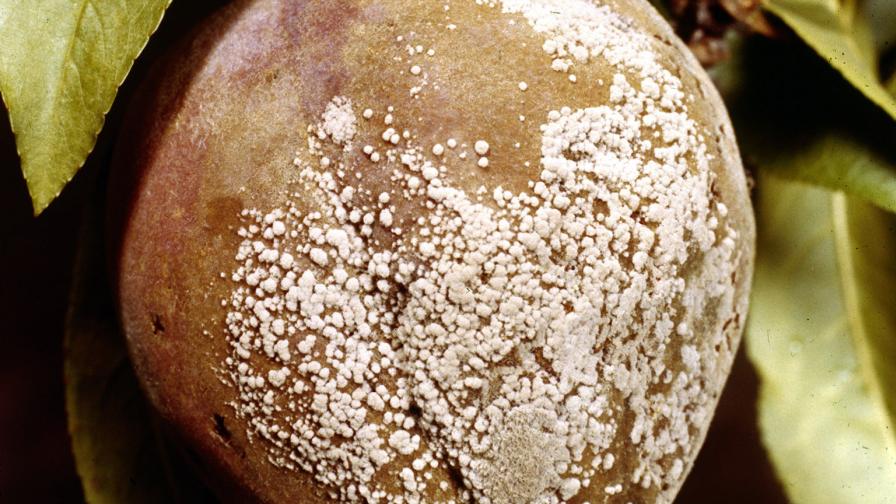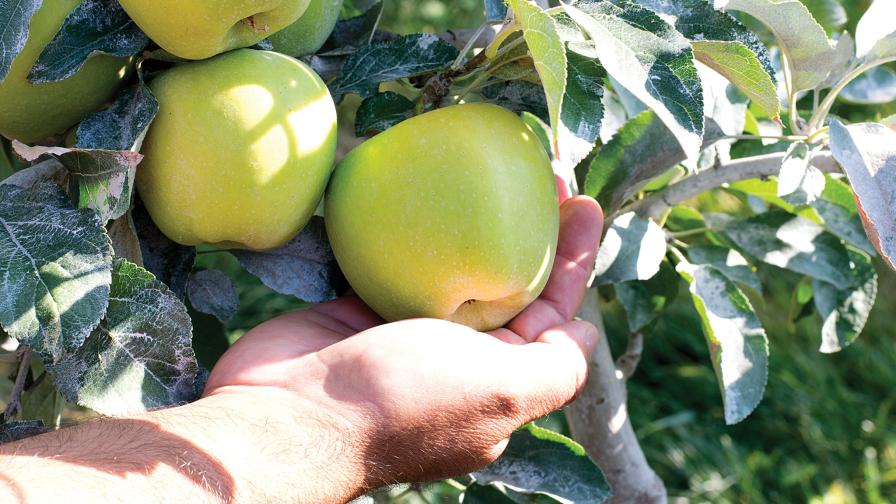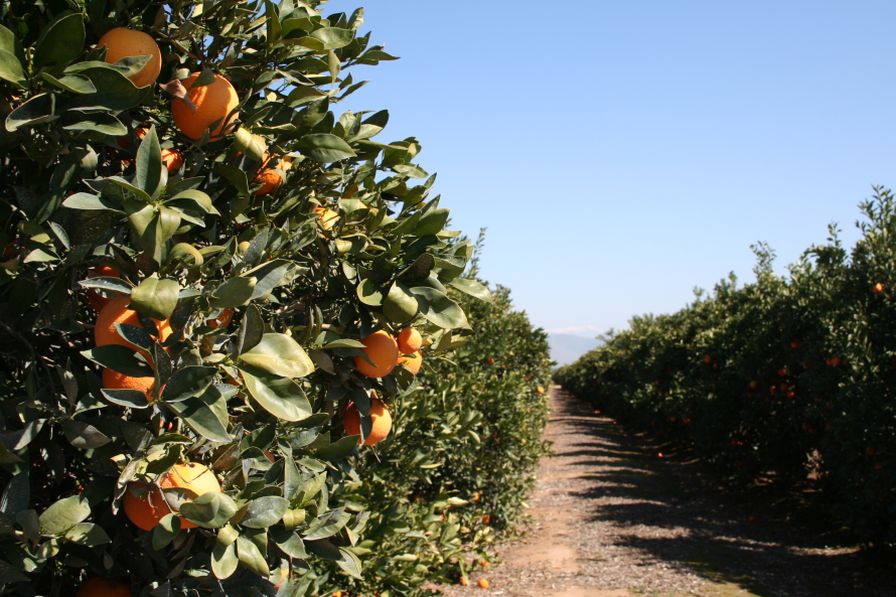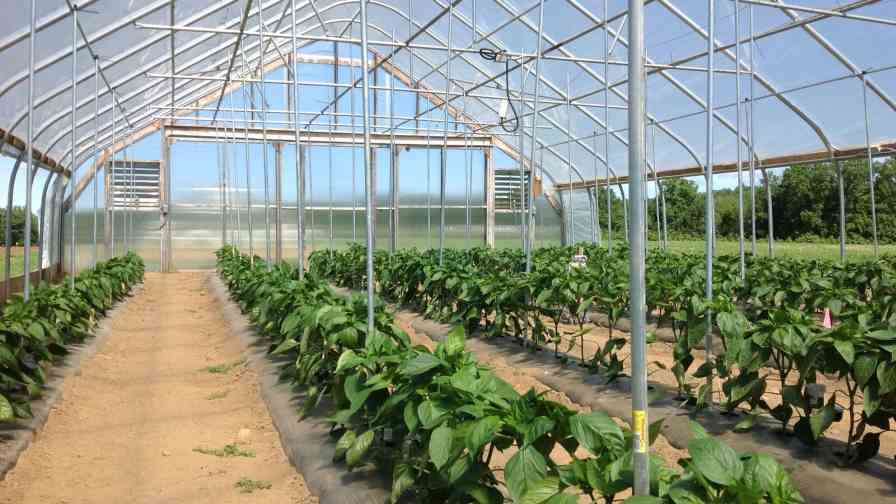How To Build A Highly Skilled Committed Spanish-Speaking Fruit Team
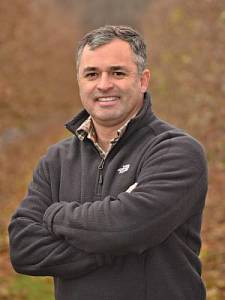 Over the past five years or so, many fruit farm operations have undergone significant growth. Orchards that used to employ only a handful of people with low-skill horticultural talent now look for more help to meet this demand.
Over the past five years or so, many fruit farm operations have undergone significant growth. Orchards that used to employ only a handful of people with low-skill horticultural talent now look for more help to meet this demand.
Today, many fruit growers have found that their horticultural or machinery skills don’t always translate to Spanish-speaking people skills.
The competitive challenge for growers is to find, attract, and retain the right people (whether Spanish-speaking employees or not) from within the farm operation, assuming that full-time Spanish-speaking employees are legally employed, satisfied, engaged, and waiting for a new job opportunity inside the farm. Finding the right people who can support the development of new business opportunities won’t be easy. Assembling the wrong horticultural team and staffing up prematurely could become costly and catastrophic.
The Horticultural Team
Creating a high-functioning horticultural team is challenging under any circumstances. But when the team you are trying to build crosses different cultures, how do you meld individuals’ talents, cultural expectations, and communication barriers into a super-performing team?
For example, if you manage a Spanish-speaking harvest team (where only one or two people can barely communicate in English), you face greater communication challenges than those who lead a Jamaican harvest team (where the majority can speak English).
Complicating your communication task is the probability that this growing season you incorporated the use of some type of new technology or motorized platform for higher labor efficiency and were not fully able to explain the benefits of the technology to your Spanish-speaking employees.
In this complicated and rapidly-evolving labor situation for fruit growing, you have to take action to capitalize on new opportunities and execute them efficiently. But it is also essential for you and your teams to learn quickly, keep up with developing events, and stay ahead of the competition. That will happen only if you foster strong working relationships with your most talented Spanish-speaking employees and assemble skilled horticultural teams inside your farm.
Taking A Team Approach To Orchard Skills
While there is no single secret to success when building the perfect horticultural team, there are some common traits I recognize in the most successful fruit growers who employ Spanish-speaking employees at their operations.
One of the single greatest changes you can make is to build basic Spanish-speaking relations in the orchard. No matter how good or poor your Spanish pronunciation is, you must learn to say “Buenos Dias” (Good Morning), “Como Está Hoy” (How Are You Doing Today). You can also say a few words in Spanish and smile — and mean it! When you or I smile sincerely, the warmth becomes self-reinforcing.
When I am asked to serve as a translator for a meeting between a grower and the Spanish-speaking orchard workers, frequently the first question that the employees will ask their “patron” (boss in Spanish) is, “How am I doing in my job?” Though the grower may have just finished going through a list of things that have been done well and some that need improvement, Spanish-speaking employees crave one-on-one contact, horticultural coaching, and constructive feedback — positive or negative — from their boss or orchard manager.
You, the grower, must show real interest in the well-being of your orchard workers. This attention to Spanish-speaking communication creates a “relationship” between you and your orchard worker, with the result of the labor task receiving maximum attention. Your workers’ commitment to the fruit farm is also increased. If you work hard at this aspect of communication with your Spanish-speaking employees, you will create better, trusted, longer-lasting relationships.
Most successful Spanish-speaking orchard managers are smart, have good people skills, can build confidence and generate enthusiasm, enjoy interacting with other growers, know the horticultural details of pruning, hand thinning, and harvest, and reliably make their budgets and deliver results.
But in addition to all this, the best Spanish-speaking orchard managers have something more. They are curious, walk the orchard regularly, and can look at a problem through multiple lenses. They excel at mobilizing and exciting Spanish-speaking workers and are clear about the tasks to be accomplished (i.e. number of fruit buds to leave per tree when conducting precision pruning), but know when to change direction. They can see when a new pruning practice will be profitable and convert it to a new horticultural management tool. They can spot an unmet need (e.g., picking apples efficiently without the use of ladders) and change course to go after a bigger profit and more comfortable working conditions for their orchard workers.
As their teams pursue new labor goals (more bins of high quality fruit per person per day when harvesting and clipping apples with motorized platforms) and strive to achieve this or other milestones, they have a clear view of what is in or out of alignment in terms of the orchard team.
Relationships At Their Best
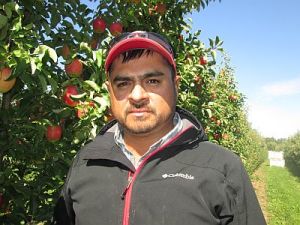
Jose Iniguez is the orchard manager at Lamont Fruit Farm Inc., NY.
Every Spanish-speaking orchard labor story is different. But when it comes to producing good horticultural research or high yields of high quality fruit, a smarter, committed, and motivated Spanish-speaking labor force is key, in my opinion, for the success of the U.S. fruit industry in the following years.
The success of Jose Iniguez and Leo Dominguez can be attributed to their authenticity, passion for horticulture, and a real sense of personal integrity.
Jose Iniguez is an orchard manager at Lamont Fruit Farm, an innovative operation in New York with whom I have worked and collaborated in applied research projects for the past 5 years. He came to the U.S. and began working as a picker in Mattawa, WA, and then moved to New York in 1994.
Jose has a clear picture of what he and his fruit company want to achieve every year. He knows exactly what yield targets via precision orchard management he is trying to hit and is able to measure whether he gets there or not, block by block. He plans for each aspect of pruning, hand thinning, harvest, nursery production, and the efficient use of new machinery and technology. He has a budget and knows when to stick to it and when not to. He walks the orchard regularly and remains fully engaged with the people the entire season.
The 2014 FIFA World Soccer Cup in Brazil was an important event last year. A grower might consider that losing a couple of hours during hand thinning does matter for final fruit size, but in terms of job satisfaction and commitment with the fruit company, Jose understood that national pride during the World Cup mattered a lot more to his employees. In July, Jose allowed all workers who were hand thinning to go home and watch the Mexican soccer game. Unfortunately, Mexico lost the last match and did not qualify, but this managerial gesture indicated he was flexible and generous.
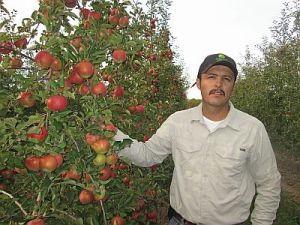
Leo Dominguez is a research support specialist who works at the Agricultural Research Station in Geneva, NY.
The hard work and academic success of Leonel “Leo” Dominguez should be an inspiration to other young Mexicans who are legally working in fruit operations in the U.S. and have a passion for horticulture.
After graduating from college in Chihuahua, he decided to leave Mexico at the age of 22 in 2006 and moved to Washington state. Leo faced long hours of hard work in a Washington Tree Fruit Research Commission lab during the day, at a packing house during the night shift, and picking cherries on the weekends. He moved to New York in 2007 and was hired by Terence Robinson as a temporary technician and part of a picking crew working at the Agricultural Research Station in Geneva. His work ethic and attention to detail for horticultural research were outstanding. Robinson offered him a full-time research support specialist position and then simultaneously gave him the opportunity to pursue a master’s degree in Horticulture at Cornell University.
Leo was so determined to reach his objective of obtaining his M.S. at Cornell and he was so well prepared to conduct research in tall spindle apple planting systems, he was awarded a promotion this past summer. Today Leo is a respected employee who conducts all key aspects of the applied research program led by Robinson at Cornell. He also wants to become a nurseryman and a consultant and help the Mexican fruit industry in the near future.
When I told Leo I was preparing a column for this magazine about the Spanish-speaking labor force and asked for his input, he simply said, “Tell the growers that kind words of encouragement are good and to offer any new opportunity to inspire Spanish-speaking people to work better, harder, and more efficiently in the orchards.”





